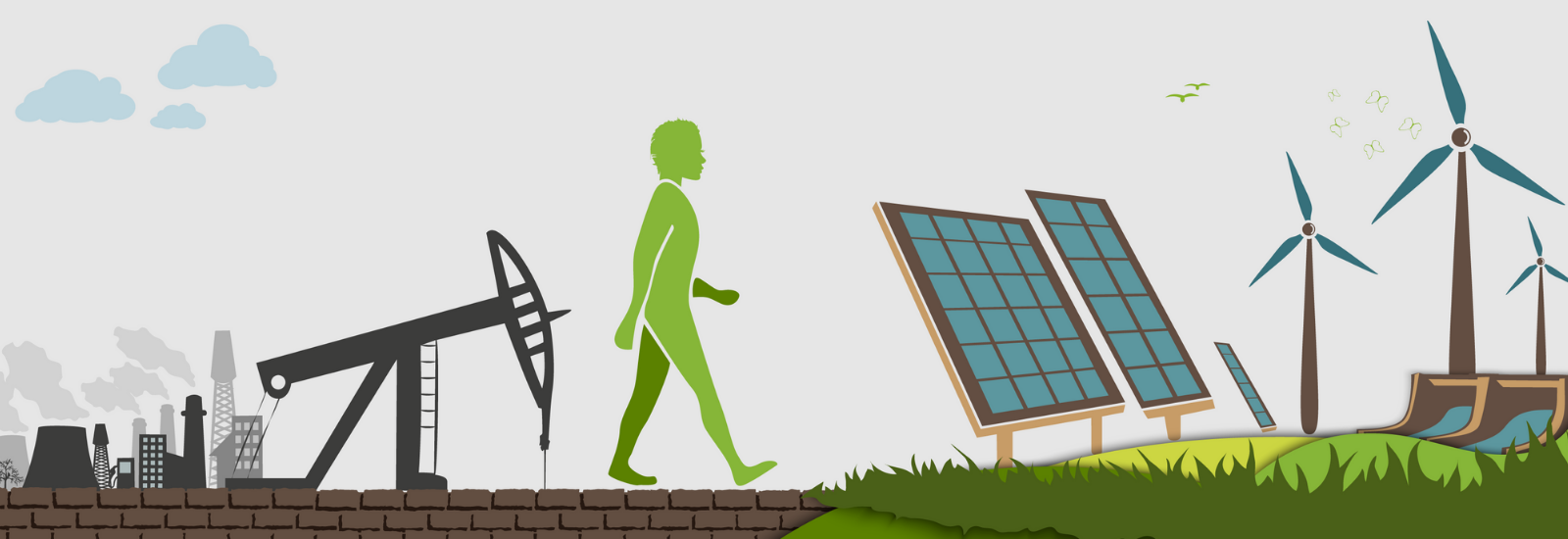
Q : What is Climate Change?
A : The United Nations (UN) defines climate change as the long-term shifts in temperatures and weather patterns. These shifts could be natural as they have been through the changing solar cycle. However, since the 1800s, human activities have driven temperatures to rise and have been the main driver of climate change, primarily due to burning fossil fuels like coal, oil and gas. The burning of fossil fuels generates gases that have a greenhouse effect which acts like a blanket wrapped around the Earth, trapping the sun’s heat and causing temperatures to rise.
Q : What is the difference between mitigation and adaptation?
A : The United Nations Office for Disaster Risk Reduction (UNDRR) defines mitigation as the lessening or minimizing of the adverse impacts of a hazardous event, whereas United Nations Framework Convention on Climate Change (UNFCCC) defines adaptation as the adjustment in natural or human systems in response to actual or expected climatic stimuli or their effects, which moderates harm or exploits beneficial opportunities.
In a very basic sense of the terms, mitigation refers to efforts undertaken to reduce greenhouse gas (GHG) emissions to contain the changes that it has on the global climate system. Adaptation, on the other hand, refers to efforts undertaken to deal with the effects of climate change at the societal, economic and political level.
Q : What is the Paris Agreement?
A : The UNFCCC holds a conference annually called the Conference of Parties (COP), the first of which was held in Berlin in 1995. The annual COPs are held by the UNFCCC to bring together countries to take global climate action forward.
In the 21st COP held in Paris, 196 parties signed an agreement to limit global warming to well below 2, preferably to 1.5 degrees Celsius, compared to pre-industrial levels. This legally binding international treaty on climate change went on to be known as the Paris Agreement. It is a landmark in the multilateral climate change process because, for the first time, a binding agreement brings all nations into a common cause to undertake ambitious efforts to combat climate change and adapt to its effects.
Q : What is Climate Modelling? How does it help create pathways for the future?
A : A climate model is a mathematical representation of the physical processes that determine climate. It simulates the future climate via baseline assumptions under boundary and initial conditions driven by observations. The plausible future is simulated with respect to different warming scenarios.
Q : What are the challenges in designing climate models?
A : Climate models have various components within that to simulate different climate components like atmosphere, ocean, chemistry, and biosphere. Among the many challenges to design such a model, the important ones include limited understanding of dynamics within such components and non-linear interactions between them. Limitations on the granular availability of observational data to design and validate such models also add on to design challenges.
Q : What are the implications of the Glasgow Climate Pact for India?
A : The Glasgow Climate Pact was signed in 2021 in the UNFCCC COP26 between 197 parties and agreed to phase out fossil fuel subsidies that are inefficient and phase down unabated coal power. There have been several ideas and opinions about the implications of this for India. At the policy making level, it requires India to create a long-term plan for the implementation of the five commitments made by India’s Prime Minister. For India, it provides the direction towards a long-term strategy, India’s next Nationally Determined Contributions (NDCs) along with the development of the country’s National Adaptation Plan and long-term finance commitments.

Q : What are commitments made by India at COP26?
A : India, as a part of its national statement, delivered by the Prime Minister, has made the following announcements:
- India’s non-fossil fuel energy capacity (electricity generation capacity) to reach 500 GW by 2030
- India will meet 50 per cent of its energy (electricity) requirements with renewable energy by 2030
- India will reduce its total projected carbon emissions by 1 billion tonnes from now to 2030
- India will reduce the carbon intensity of its economy by 45 per cent by 2030, over 2005 levels
- By 2070, India will achieve the target of net zero emissions.
Q : What are some of the milestone projects/deliverables of the division?
A : Some of the milestone projects/deliverables of the division include the following:
Sixth International Climate Change Adaptation Conference 2020-21
The sixth edition of Adaptation Futures (AF) conference was the first to be held in Asia and hosted by The Energy and Resources Institute (TERI) in collaboration with World Adaptation and Science Programme (WASP) over 5 days starting from October 04, 2021 to October 08, 2021. A total of 75 sessions were conducted with more than 150 speakers and over 1,000 participants from across the globe. It facilitated knowledge sharing, evaluation and learning of actionable adaptation solutions across the global North and South. The conference attracted dialogue discussion among a whole range of stakeholders including practitioners, academicians, policy‐makers and communities towards scaling adaptive capacities across vulnerable landscapes and people globally.
Participation in UN Climate Change Conference (COP26) Glasgow
In the recently concluded 26th Conference of the Parties (COP26) held in Glasgow from November 1–12, 2021, the team at TERI aimed to mobilize action on mitigation, adaptation and resilience, and strengthen the narrative for better alignment with sustainable development goals. To discuss some of the key outcomes of COP26, a high-level panel discussion was organised titled, ‘Demystifying COP26: Key takeaways and future roadmap for India’ with the key members of the Indian delegation to hear their views on the outcomes and the future roadmap to achieve the targets laid out by India.
Multi-Country Cooling Platform
TERI, partnering with The Embassy of France in India, organized cross country knowledge exchange sessions under the flagship of TERI’s “Multi-Country cooling platform” and as a part of project SHEETAL - Alliance for Sustainable Habitat, Energy Efficiency and Thermal Comfort for All. The sessions facilitated panel discussions, bringing together policy and cooling industry experts from India and France around sustainable cooling across sectors such as building and cold chains.
Flood Early Warning System (FEWS)
FEWS is a flood risk management measure currently operational in many countries. The development of a Flood Early Warning System at the city level helps in sending out information to the residents of different parts of the city regarding the amount of rainfall predicted and the subsequent extent of water logging in that area. The study undertaken by TERI is part of an initiative to strengthen the urban flood management capacity in Guwahati and improve its emergency response capacity for future disasters. The objective is “to equip relevant state agencies with a fully operational near real time experimental setup ‘Flood Early Warning System’ for the Guwahati and surrounding area with an aim to ensure that flood warnings are disseminated 72 hours before flood events.”
Q : What are some of the on-going interventions that the division is engaged in?
A : The key on-going projects in the division include the following:
International Climate Politics Hub:
The International Climate Politics Hub (ICPH) is an unbranded initiative that brings together a global network of actors and experts on climate politics, policy, science, diplomacy, communications, and mobilization. With the objective of maximizing the impact of information flow towards mobilizing political will to act, this project aims to broaden climate action in India. The project supports India-EU Track II Dialogue, for preparing State Action Plans on Climate Change to strengthen sub-national climate action, and assess climate actions and progress among G20 countries (including India).
Water Security and Climate Adaptation in Rural India:
The project aims to enhance water security and adaptation to climate change by adopting an integrated approach towards water resources management at the national, state and local levels. TERI is leading the efforts towards providing an evidence base for contextualizing climate adaptation measures for enhancing water security in the designated project locations through scientific assessment of climatic typologies, identifying appropriate adaptation measures, and drawing the road map for localizing innovative solutions and identifying areas of convergence.
Revision of State Action Plans on Climate Change:
The Centre for Global Environment Research team at TERI is also working on the revising the State Action Plans on Climate Change (SAPCC) for the Union Territories of Puducherry and Chandigarh and the state of Uttarakhand. The projects involve climate modelling of these regions to understand regional climate risks on the basis of which assessments of vulnerability are being conducted at the sectoral and regional levels as per the requirements of the state/UT. The assessment of vulnerability is complemented with strategies designed for adaptation to climate risks and mitigation of climate change inducing factors such as GHG reduction. The document also contains a chapter on the financials involved in implementing the SAPCC. Along with this, an institutional mechanism and a framework for monitoring and evaluation of the interventions is also being developed.
Strengthen national climate policy implementation: Comparative empirical learning and creating linkage to climate finance (The International Climate Initiative (IKI) – SNAPFI:
The project aims to explore the implementation of NDCs in different geographies, and how this can be supported through International Climate Finance (ICF). The project intends to understand the role that ICF can play in emerging economies, research organizations from five countries (Brazil, Germany/ EU, India, Indonesia, and South Africa) came together, under the four-year-long SNAPFI project.
The Framework Agreement between the Norwegian Ministry of Foreign Affairs (MFA) and TERI – Climate Change:
The Framework Agreement Programme supported in enhancing the growth and development of India's economy on the path that addresses adaptation and mitigation aspects of climate change leading to sustainable development with a focus on efficient resource utilization. The programme focused on the policy research analysis of three thematic areas viz. (i) sustainability and clean energy; (ii) climate change; (iii) low carbon and resource efficient growth.
TThe explainer has been put together by Mr Saurabh Bhardwaj – Senior Fellow, Ms Dhriti Pathak – Research Associate, Ms Dorothy Ashmita Biswas – Project Associate, researchers working in the areas of climate change, and global environment
